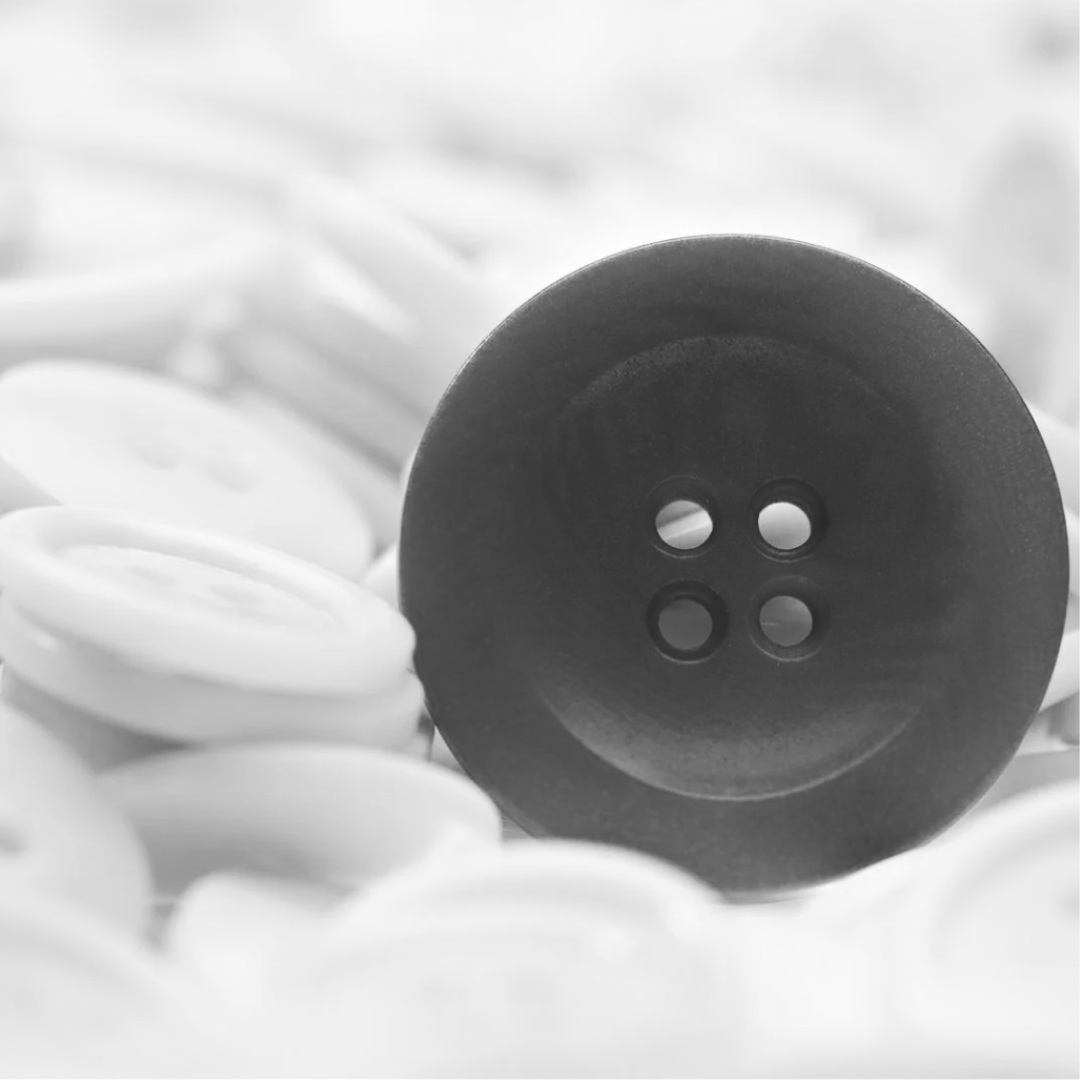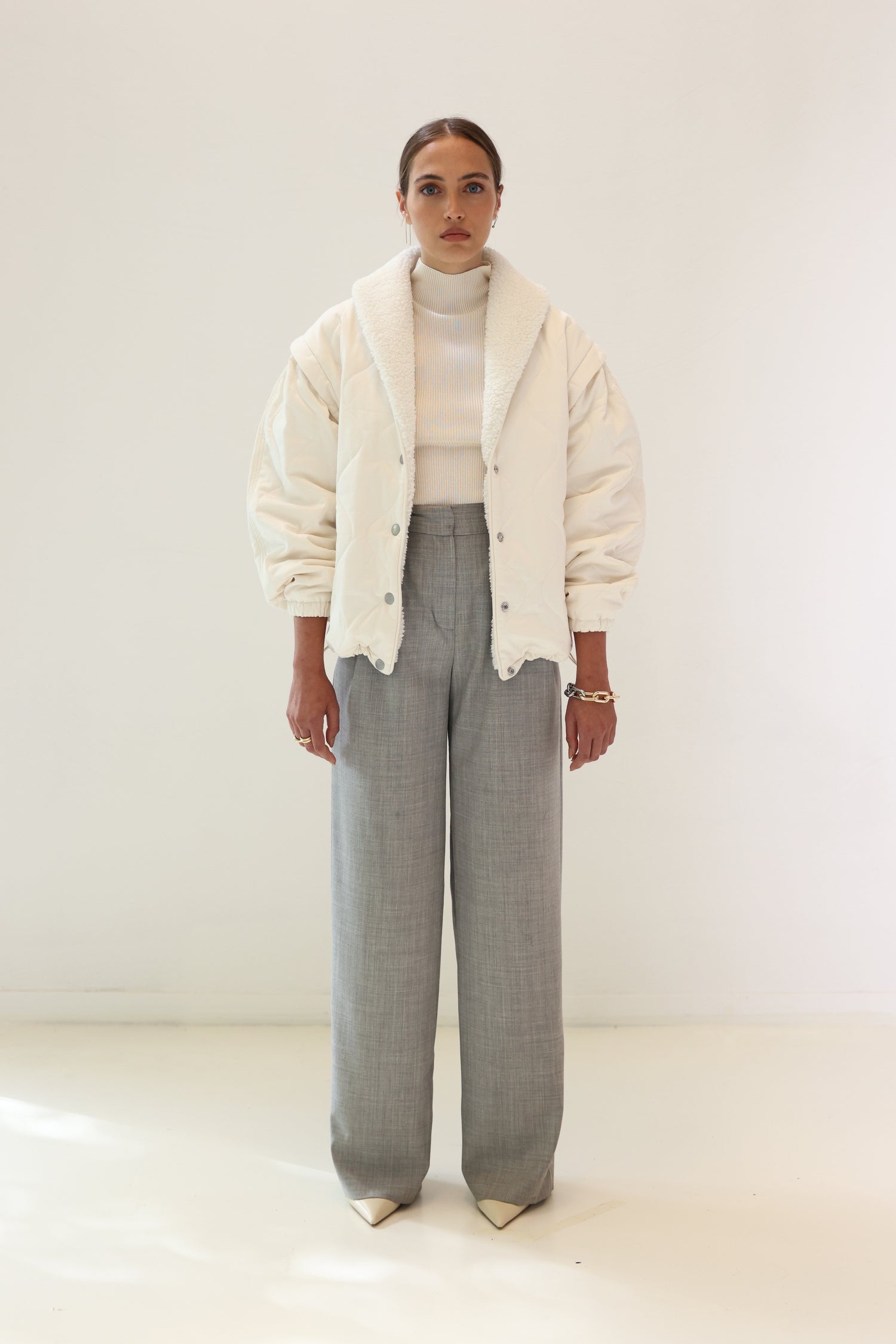OUR MATERIALS
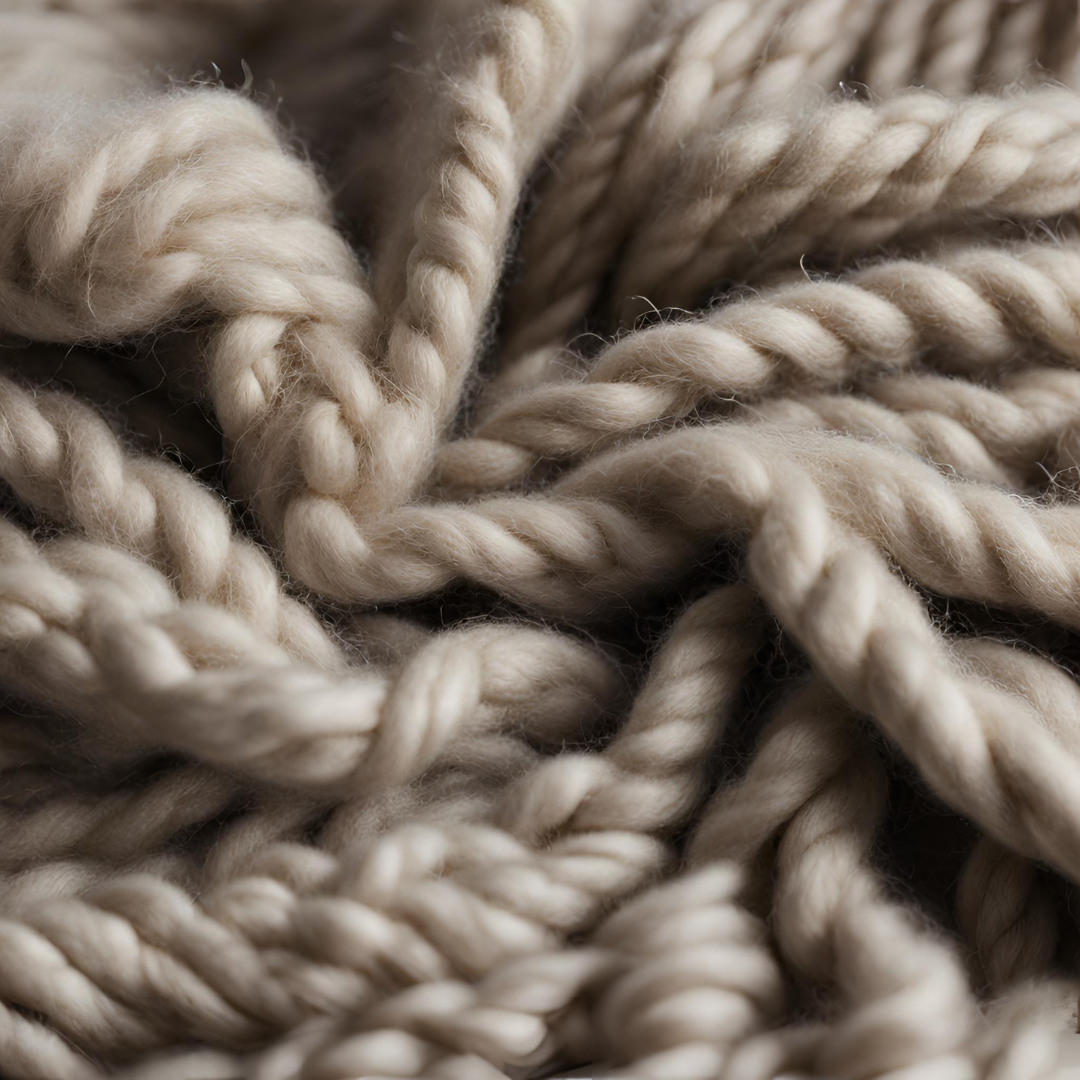
WOOL
The italian wool we use in our garments comes from non-mulesed sheep and is certified according to the Responsible Wool Standards (RWS), they ensure the wool comes from farms that have a progressive approach to managing their lands, practice holistic respect for animal welfare of the sheep and respect the five freedoms of animal welfare. Mulesing is a quick method of controlling flystrike in merino sheep, resulting in poor welfare both during and after the procedure and it is categorized as cruel and painful by PETA, who advise more humane alternatives. Wool is a natural material that will biodegrade when disposed of.
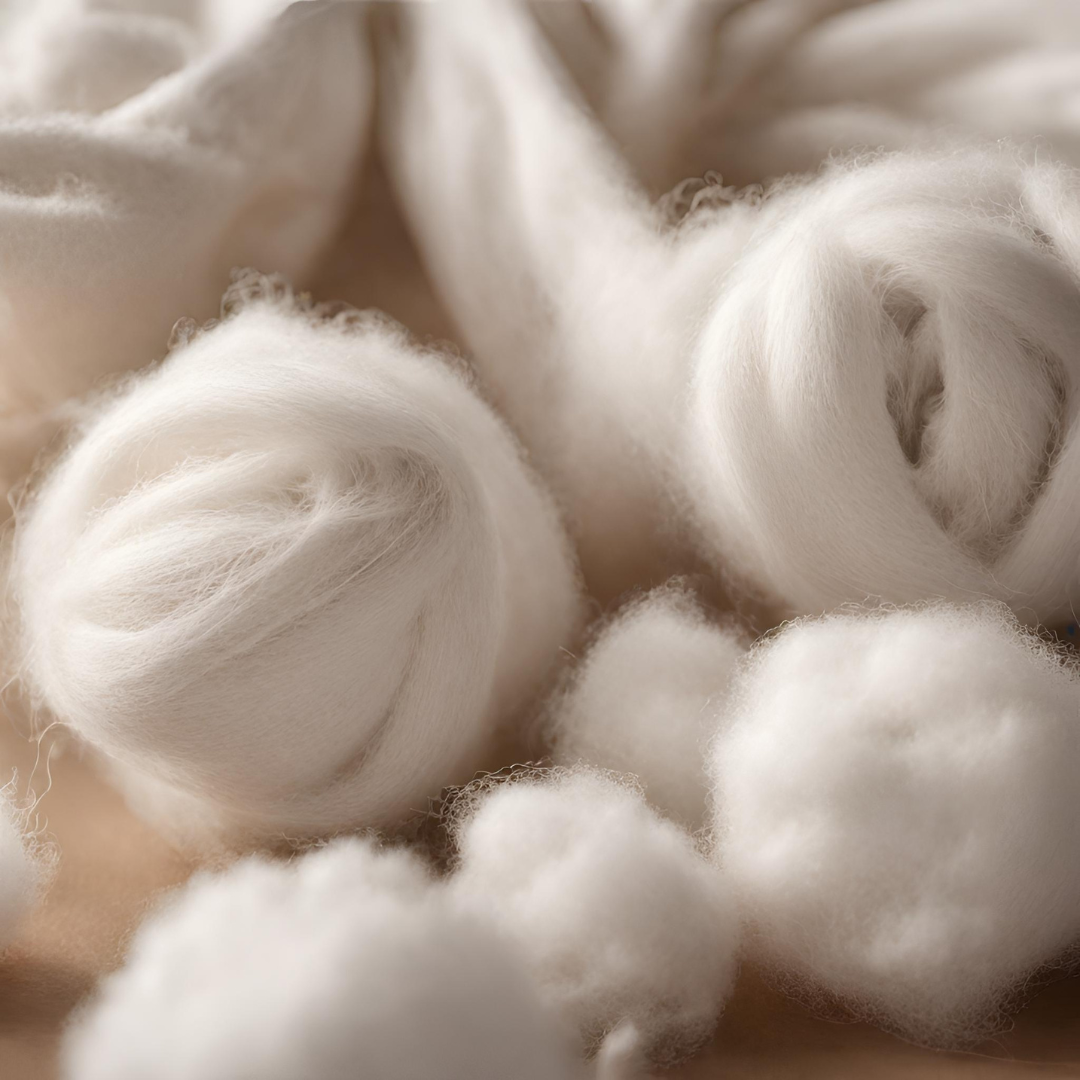
ORGANIC COTTON
Grown without the use of harmful pesticides or synthetic fertilizers, organic cotton promotes soil health and biodiversity while protecting the health of farmers and nearby ecosystems. With a focus on sustainability, our organic cotton is cultivated using natural farming practices, conserving water and reducing greenhouse gas emissions. By choosing organic cotton, you're not only embracing luxurious softness and breathability but also supporting a healthier planet.
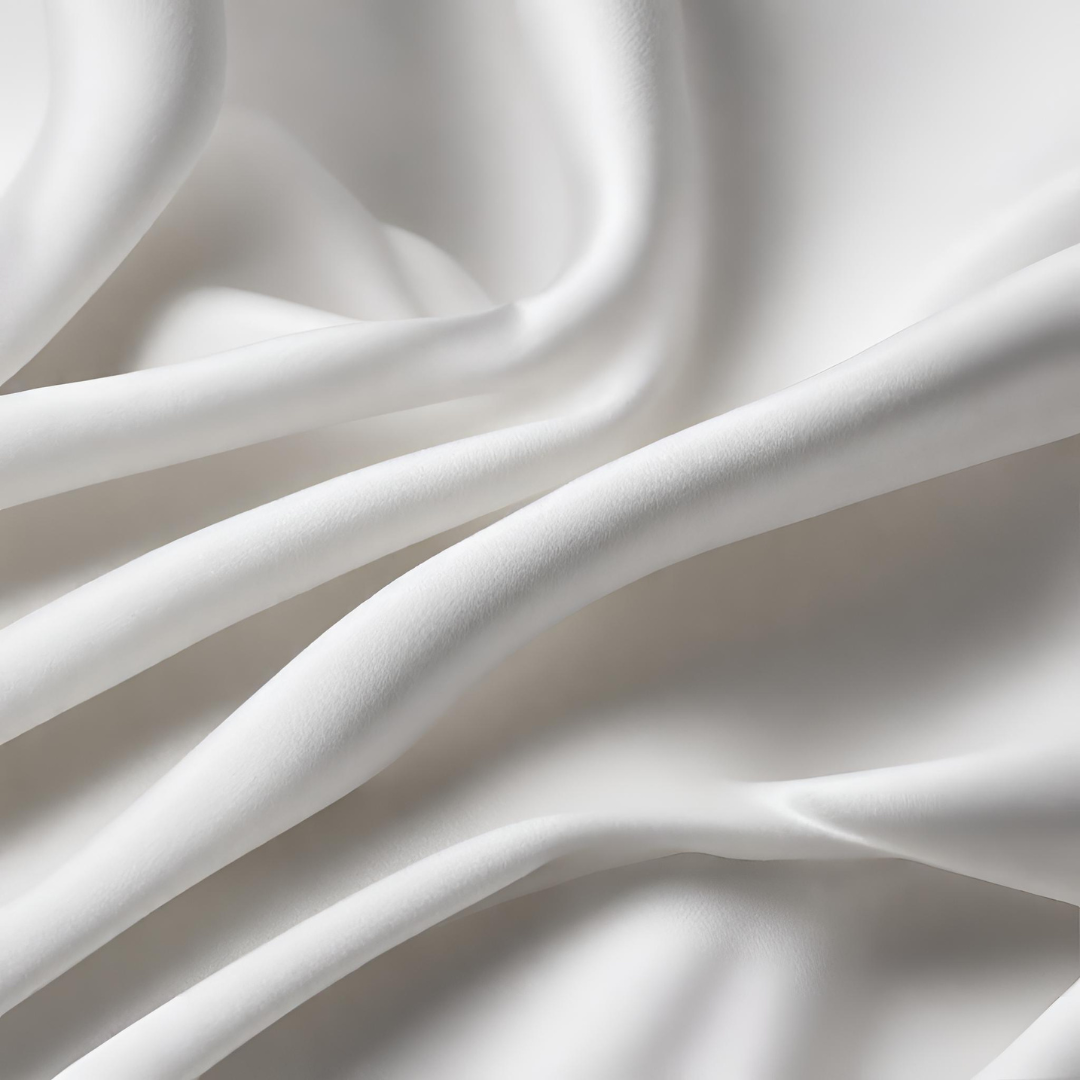
LYOCELL
Made from sustainably sourced wood pulp, Lyocell boasts a closed-loop production process that minimizes waste and reduces environmental impact. This innovative material is biodegradable and requires less water and energy compared to conventional fabrics, making it a planet-friendly choice for your wardrobe.
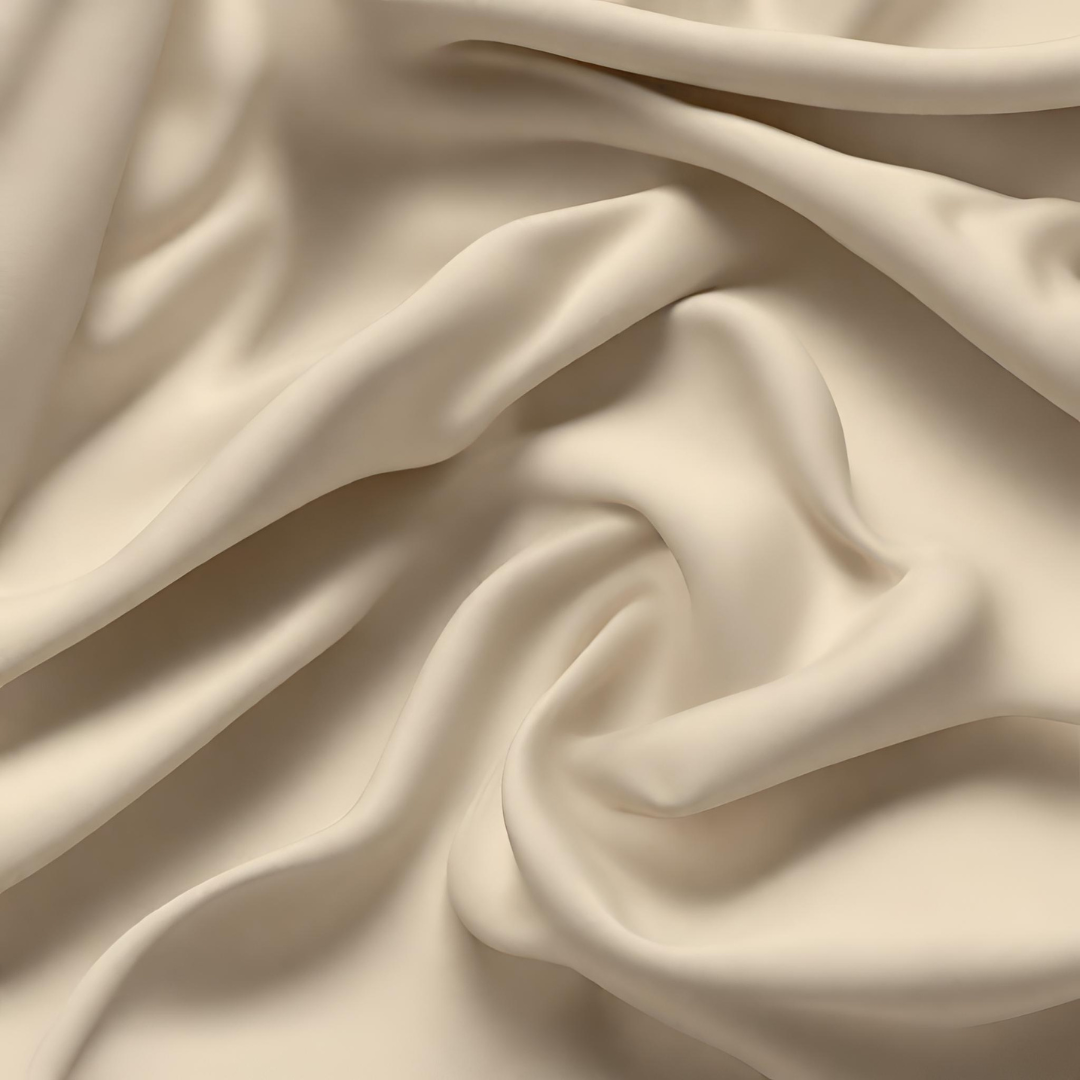
MODAL
Crafted from beechwood pulp, modal offers a luxurious feel with a conscience. Known for its softness, breathability, and durability, Modal is produced using an eco-friendly closed-loop process that minimizes environmental impact. This innovative manufacturing method significantly reduces water usage and chemical consumption, making Modal a planet-friendly choice for conscious consumers.
